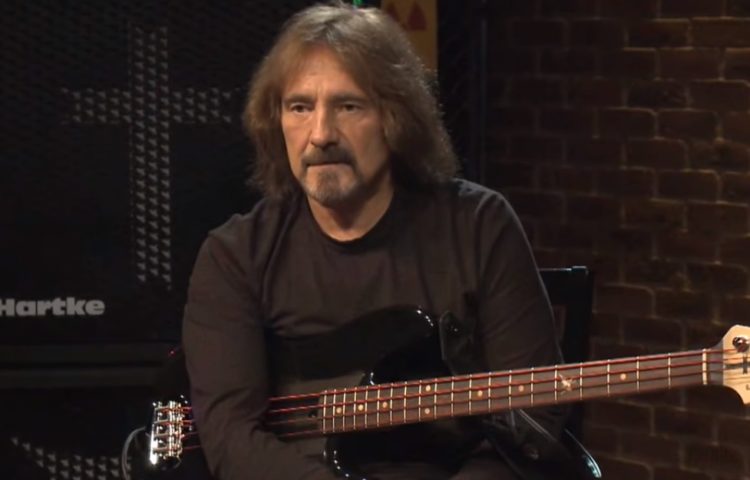
Geezer Butler is preparing to launch his forthcoming autobiography, Into the Void: From Birth to Black Sabbath and Beyond, prompting the iconic BLACK SABBATH bassist to delve into his introspective side.
In a recent conversation with Metal Edge, Butler opened up about the peaks and valleys throughout SABBATH‘s extensive discography, disclosing what he believes is the worst album they ever produced, as well as choosing his individual favorite from the band’s formidable initial years.
“I will say that Never Say Die! (1978) is easily the worst album we did,” Butler told Metal Edge. “The reason for that is we tried to manage ourselves and produce the record ourselves. We wanted to do it on our own, but in truth, not one of us had a single clue about what to do. By that point, we were spending more time with lawyers and in court rather than being in the studio writing. It was just too much pressure on us, and the writing suffered.”
Intriguingly, Butler accepts partial responsibility for SABBATH‘s unfavorable audio shift in albums such as Technical Ecstasy (1976) and Never Say Die!. Concurrently, as the group dealt with financial difficulties, the quartet encountered a creative deadlock. In this situation, Butler and guitarist Tony Iommi sought to explore novel sonic avenues, whereas singer Ozzy Osbourne aimed to further polish the established heavy-metal style they were recognized for.
“The thing is, we were trying to progress too much musically,” Butler said. “We completely lost the plot, I think. We stopped doing the things that made SABBATH what it was and began going from more melodic stuff, which was a mistake looking back. Ozzy always wanted to still sound like the old version of SABBATH, while Tony and I wanted to expand musically. Looking back, Ozzy was probably right because our expansion caused us to lose what SABBATH was supposed to be about.”
Although Butler expressed numerous criticisms regarding SABBATH‘s shortcomings during that era, he also reminisces positively about the pinnacle of their profession, particularly the initial four albums when they possessed a pressing need to sustain their creative drive and produce exceptional tracks. Among those records, Paranoid (1970), their sophomore album, remains the most prominent for Butler even after all these years.
“It was a totally complete album,” he said. “It wasn’t forced, and the chemistry between the four of us was so fluid. I remember getting together to do that record, and we wrote literally everything immediately. Each song came together so easily and had such fire. And each time we would go into rehearsal, we’d come out with a completed song. I think that’s why that album is special, because of how naturally things came together. It was the most organic record that SABBATH — in any era — ever made. It was completely natural, as it should have been.”
Reeder, the visionary behind Metal Addicts, has transformed his lifelong passion for metal into a thriving online community for metal aficionados. As a fervent devotee of black metal, Reeder is captivated by its dark, atmospheric, and often unorthodox soundscapes.